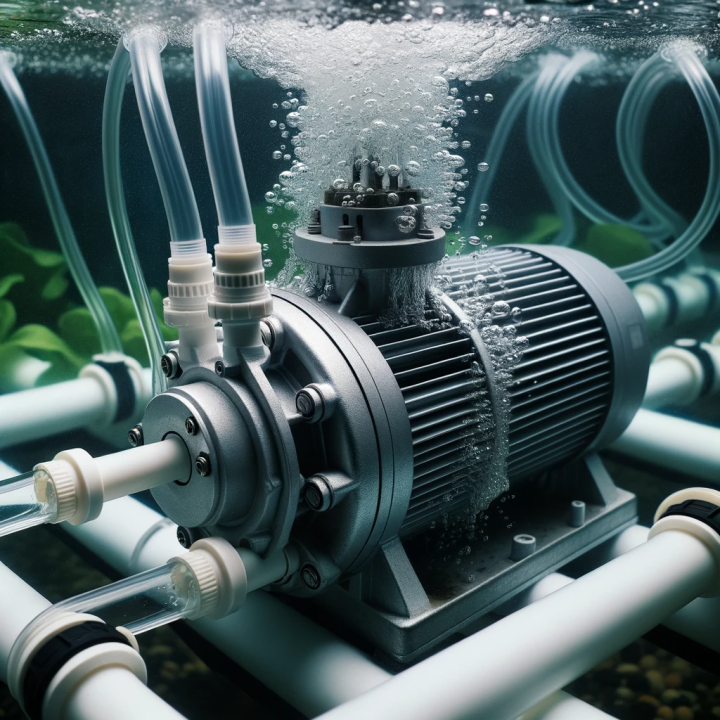The Ultimate Guide to Choosing Water Pumps for Gardens and Hydroponics
Introduction
In the enchanting world of garden features and the innovative realm of hydroponics, the heart of a thriving system often lies in the silent hum of a water pump. These mechanical marvels are pivotal in ensuring the life-giving flow of water, a crucial element for both aesthetic garden features and the nourishment of hydroponic plants. This guide will help you choose the perfect water pump that aligns with your gardening or hydroponic needs.
Understanding Water Pumps
Basic Types of Water Pumps
- Submersible Pumps: Operate while submerged, ideal for ponds and water features.
- External Pumps: Positioned outside the water, suitable for larger or high-pressure systems.
- Solar-Powered Pumps: Eco-friendly option using solar energy, best for sunny locations.
How Water Pumps Work
Water pumps function by creating pressure to move water through a system. They draw water in and propel it through a discharge outlet, maintaining essential flow in garden and hydroponic setups.
Key Factors in Choosing a Water Pump
Pump Capacity and Flow Rate
Match the pump's gallons per hour (GPH) rating with your system's requirements to ensure proper water movement.
Head Height and Pressure
Ensure your pump can handle the vertical distance (head height) and pressure demands of your system, especially if using filters or elevation changes.
Energy Efficiency
Choose energy-efficient models to reduce electricity costs and environmental impact.
System Compatibility
Make sure the pump integrates seamlessly with your specific garden or hydroponic configuration.
Durability and Maintenance
Opt for pumps built with long-lasting materials and easy maintenance access to prolong usability.
Noise Levels
For tranquil settings, a low-noise pump is ideal to preserve the ambiance.
Water Pumps for Garden Features
Submersible Pumps
Common in ponds and small features due to ease of installation and silent operation beneath water.
External Pumps
Preferred for large features needing high flow or head pressure, placed outside the water body.
Solar-Powered and Fountain Pumps
Great for environmentally conscious gardeners and those seeking decorative effects with varied fountain heads.
Water Pumps for Hydroponic Systems
Ebb and Flow
Pumps that manage periodic flooding and draining cycles are essential here.
Deep Water Culture (DWC)
Requires pumps that continuously aerate and circulate nutrients around the root zone.
Nutrient Film Technique (NFT)
Needs pumps that deliver a steady, gentle nutrient flow across plant roots.
Aeroponics
Uses high-pressure pumps to mist plant roots with nutrient-rich solutions.
Installation and Setup Tips
Garden Features
- Level the base before placing the pump.
- Secure connections to prevent leaks.
- Test water flow before final placement.
Hydroponic Systems
- Position the pump close to the reservoir.
- Use compatible tubing to avoid clogs.
- Regularly check flow consistency and nutrient distribution.
Maintenance and Troubleshooting
Routine Care
Clean filters, inspect for wear, and check for blockages monthly to ensure peak performance.
Common Issues
Address noise, poor flow, or leaks quickly by checking for debris, loose connections, or part failures.
When to Replace
If a pump shows reduced output, loud noise, or mechanical wear despite maintenance, replacement may be necessary.
Innovations and Sustainability
Smart Pump Technology
Modern pumps offer automation features to adjust flow based on system needs and environmental data.
Eco-Friendly Design
Look for models that minimize power consumption and are made from recyclable materials.
Conclusion
Selecting the right water pump can dramatically improve the efficiency, beauty, and sustainability of your garden or hydroponic system. With the insights from this guide, you can make an informed choice that ensures long-term success in your green endeavors.
Frequently Asked Questions (FAQs)
1. What flow rate should I use for a garden pond?
A good rule is to circulate the entire pond volume every two hours.
2. Can I use a regular pump for hydroponics?
Specialized hydroponic pumps ensure better nutrient delivery and system compatibility than general-purpose pumps.
3. How often should I clean my pump?
Clean at least once a month to prevent clogging and maintain performance.
4. Are solar pumps powerful enough?
They work well for smaller, sunny installations but may not meet the needs of large or shaded systems.
5. What’s the lifespan of a good water pump?
With proper care, a high-quality pump can last 3–5 years or more.

